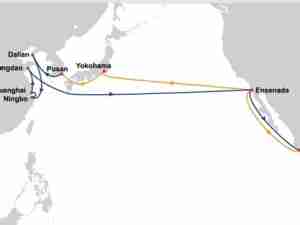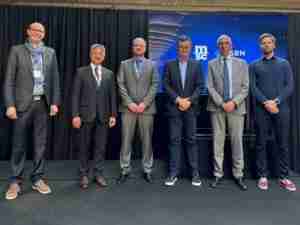Charles G. (Chuck) Raymond, Chairman,President and CEO of Horizon Lines, Inc. today outlined a road map for developing a U.S. Marine Highway that will ease congestion around gateway trade corridors and improve the overall efficiency of America's transportation system.
Raymond told attendees at North America's Marine Highways Conference that Horizon Lines is working with maritime unions to design a viable labor model for a Coastwise Container Feeder Network. The feeder service will act as a safety valve moving containers from congested gateways to smaller ports closer to destination with better intermodal connections. The U.S. Maritime Administration is hosting North America's Marine Highways Conference April 15-16 in Virginia Beach, Va.
Raymond called for the creation of a National Port Development Plan within the context of the National Freight Transportation Program recommended by The National Surface Transportation Policy and Revenue Study Commission. The national port plan would prioritize federal funding of port projects, such as dredging and inland infrastructure construction according to a port's role in global supply chains.
"A strategic approach to port development within a national freight transportation funding framework will play a key role in creating a viable Marine Highway system," Raymond said. "Gateway ports with deep water will serve the large containerships and the primary metropolitan consumer markets. Regional ports will provide the intermodal safety valve served by a network of smaller container vessels and ro/ro ships, offering fast connections and efficient service to local markets. Inland ports will develop efficient highway alternatives, supporting barge and ferry networks."
Raymond discussed our country's need for a working Marine Highway to improve the fuel efficiency of the transportation system, to help ease highway and rail congestion around our major cities and to improve the environment. He reinforced the severity of the looming transportation infrastructure crisis as a reality that can no longer be denied.
"The information technology revolution has reached a plateau," he said. "We are at a crossroads, and at the crossroads of the global economy today, you find logistics. The very real business of moving real things on highways, trains, ships and airplanes is subject to the very real laws of physics."
"Simply stated, the global economy will grow only as fast as we are physically able to carry it."





